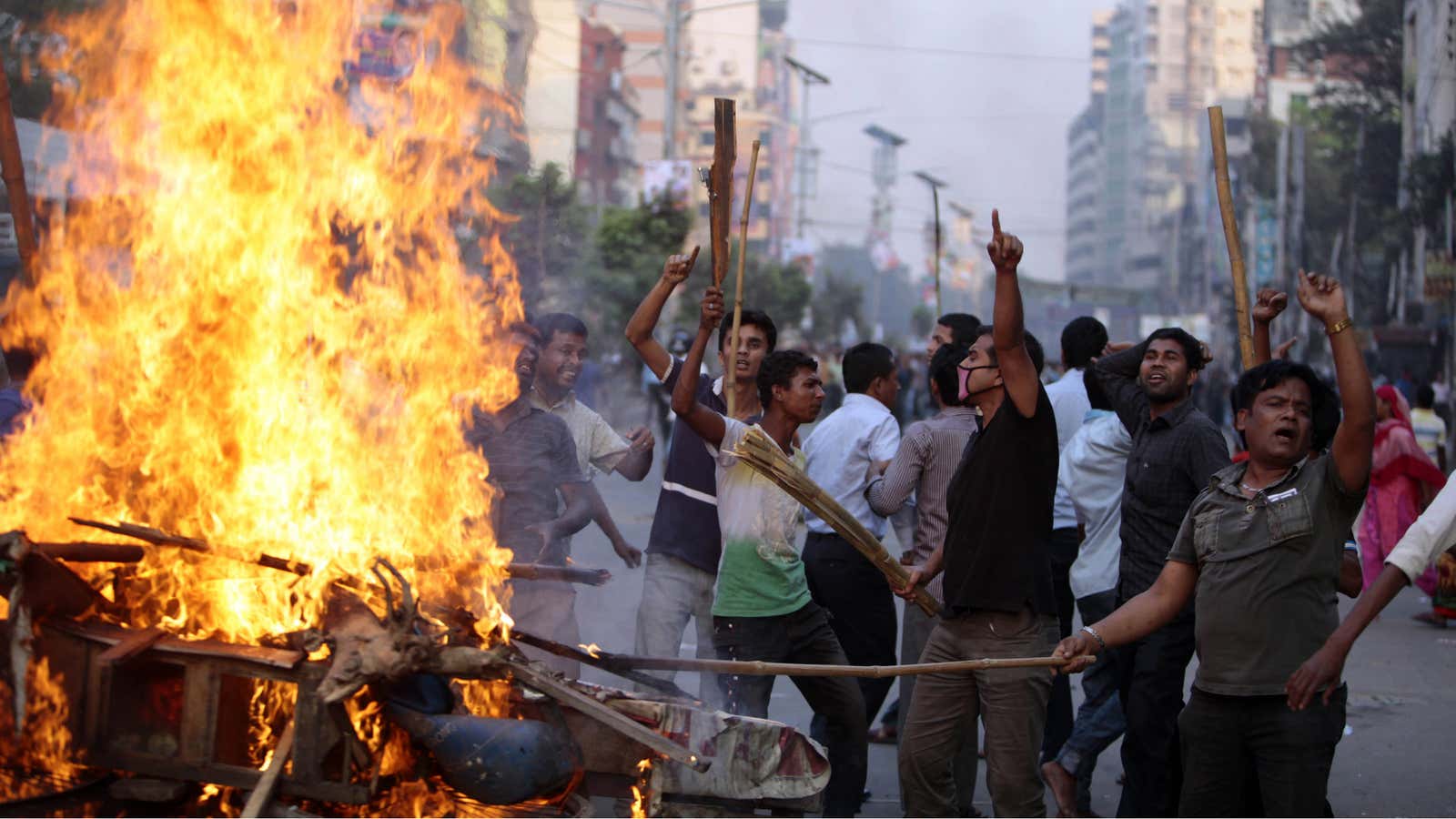Bangladesh’s political unrest is taking a heavy toll on its flagship garment industry—only recently lauded as a lower-cost alternative to China but now decimated by debilitating protests and foreign companies scared off by violence.
The Garment Manufacturers and Exporters Association president, Muhammad Atiqul Islam, told Reuters on Tuesday that strikes and supply chain disruptions have led to daily industry losses of up to $25.7 million and a 40% drop in foreign orders. “Please give us relief by shunning the politics of confrontation, and hold dialogue as early as possible,” he pleaded, adding: “our back is against the wall. We cannot tolerate it any longer.”
Over 100 people have died this year in violent protests after a war crimes tribunal sentenced a senior Islamist politician to life in prison for his role in the war of independence against Pakistan, and sentenced two other opposition figures to death. Islamist activists have also called for the death of a group of atheist bloggers; one the bloggers was stabbed to death in February.
In tragic news unrelated to the protests, an eight-story building containing a garment factory collapsed on Wednesday, killing at least 70 people.
A former government finance advisor said at the beginning of April that he believes economic growth in Bangladesh has been reduced by 0.5 to 0.6 per cent due to political instability.
Bangladesh’s previously thriving garment export industry accounts for about 80% of the country’s exports, but Mr Islam is not alone in voicing concerns for its future. Investors have been put off by more than just political unrest – low pay and poor working conditions have led to widespread criticism of the industry from rights groups, and low safety standards were blamed for fires that led to the deaths of 119 garment workers in November and January.
